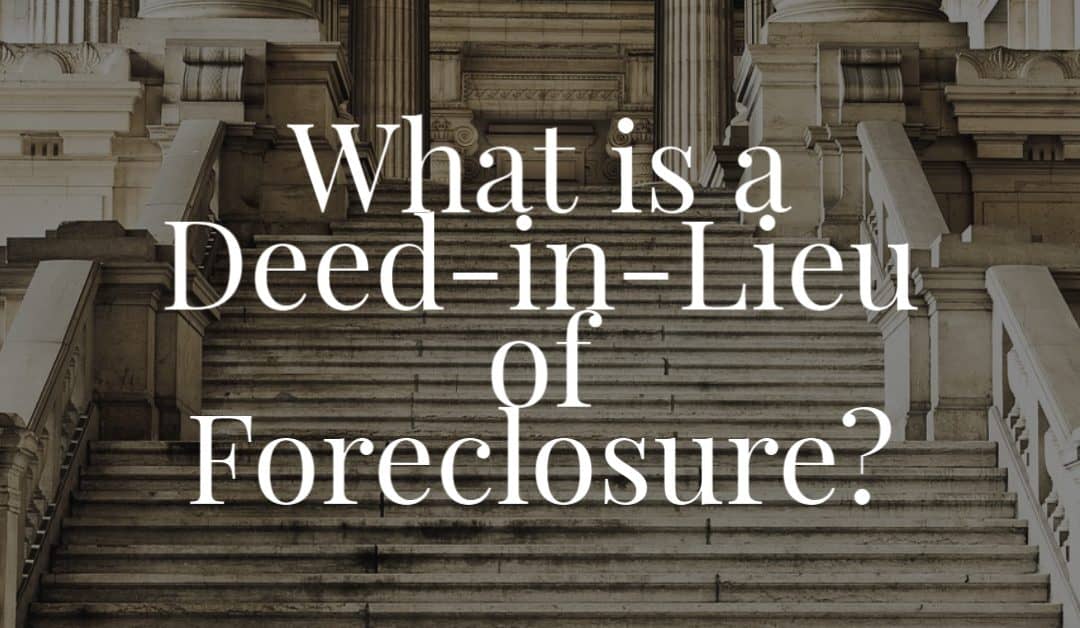
A deed in lieu of foreclosure allows a homeowner to transfer their home’s title to the bank that holds the mortgage. With the deed in lieu in place, the lender can no longer foreclose on the property. The homeowner is free from financial liability and endures less damage to their credit than if they had gone into foreclosure.
Understanding Deed in Lieu of Foreclosure
Homeowners often find themselves with mortgage payments they cannot afford. It is not always possible to sell their home for enough money to pay off the existing balance. If the bank denies you for a loan modification program or has rejected a short sale offer, a deed in lieu of foreclosure is often a better option than allowing the bank to foreclose on the property.
How a Deed in Lieu of Foreclosure Works
In the deed in lieu of foreclosure process, the homeowner deeds the property back to the lender in exchange for release of all obligations to the mortgage. If both parties agree to a deed in lieu of foreclosure, each will sign the notarized title-transferring document which then becomes part of public record. A deed in lieu of foreclosure is usually a last resort after all other options have been exhausted.
Advantages of a Deed in Lieu of Foreclosure
There are benefits for both the homeowner and the bank or lender, such as avoiding time consuming and expensive foreclosure proceedings. The homeowner has to relinquish the property and relocate, but they are relieved of the burden of the mortgage.
Although the homeowner has to move out of the house in a deed in lieu agreement, the entire process is usually done with less public visibility and allows the homeowner to keep the situation private. In some cases, the lender might even offer money to assist the homeowner with moving and expediting the transfer. The biggest advantage of a deed in lieu of foreclosure is to eliminate the debt without foreclosure.
Disadvantages of a Deed in Lieu of Foreclosure
The disadvantages of a deed in lieu of foreclosure include the damage it will do to your credit report. As with foreclosure, credit scores often plummet. However, it won’t do as much damage to your credit as foreclosure would.
Also, a bank or lender may be leery of entering a new mortgage agreement with you in the future if you have gone through the process of a deed in lieu of foreclosure in the last four years. The lender will weigh the potential benefits and risks of entering into an agreement with you.
How to Know if a Deed In Lieu of Foreclosure is Right for You
Homeowners that are having trouble making their mortgage payments can approach their lenders to find out if a deed in lieu of foreclosure is an option for them. This will typically involve submitting an application along with documented proof of their troubling financial situation.
Some banks might require that the home be listed for sale, allowing the potential of a short sale before they will consider accepting a deed in lieu.
Seek Professional Advice
A homeowner can seek professional advice before signing an agreement for a deed in lieu of foreclosure. Our attorneys at Jarrett Law Firm have experience helping homeowners in this process. If you are experiencing financial difficulties and need assistance in a possible deed in lieu of foreclosure, contact us today to schedule an appointment. We will help you make the right decision for your unique situation.


